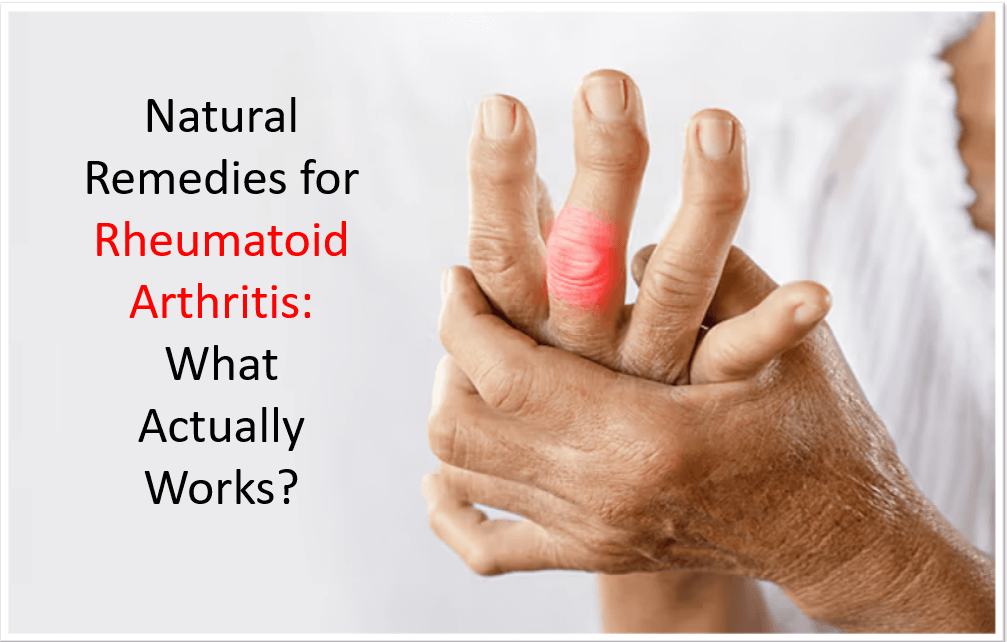Rheumatoid arthritis (RA) is a chronic autoimmune condition that affects millions of people worldwide. Characterized by joint pain, swelling, stiffness, and fatigue, RA can significantly impact daily life. While conventional treatments like disease-modifying antirheumatic drugs (DMARDs) and biologics are commonly prescribed, many people seek natural remedies to complement their treatment, reduce inflammation, and improve quality of life. But which natural remedies for rheumatoid arthritis actually work? Let’s explore evidence-based options and holistic approaches that have shown promise.
Rheumatoid Arthritis
Before diving into natural remedies, it’s important to understand what RA is. Unlike osteoarthritis, which is caused by wear and tear, RA is an autoimmune disorder where the immune system mistakenly attacks healthy joint tissue. This leads to inflammation, pain, and eventually joint damage if left untreated.
Also read: Who Is the Best Ayurvedic Doctor in Lucknow? A Complete Guide
While RA is incurable, its symptoms can be managed. Natural remedies often target inflammation, immune function, and lifestyle factors that may contribute to flare-ups.
1. Diet and Nutrition: Food as Medicine
One of the most effective natural approaches to managing RA symptoms is adopting an anti-inflammatory diet. Certain foods have been shown to help reduce inflammation, support immune function, and promote overall well-being.
a. Omega-3 Fatty Acids
Omega-3s, found in fatty fish like salmon, mackerel, and sardines, have anti-inflammatory properties that can help reduce joint pain and stiffness. Several studies have shown that omega-3 supplements can reduce RA symptoms and decrease reliance on NSAIDs.
Tip: Aim for 2-3 servings of fatty fish per week or consider a high-quality fish oil supplement.
b. Fruits and Vegetables
Packed with antioxidants, vitamins, and minerals, colorful fruits and vegetables help fight oxidative stress and inflammation. Berries, spinach, kale, and broccoli are particularly beneficial.
c. Whole Grains and Legumes
Whole grains like quinoa and brown rice, and legumes such as lentils and beans, provide fiber that supports gut health and reduces inflammation markers in the body.
d. Avoid Pro-Inflammatory Foods
Steer clear of processed foods, sugary drinks, red meat, and refined carbs, which can trigger inflammatory responses in the body.
2. Exercise and Movement Therapy
Staying active might seem counterintuitive when joints hurt, but regular low-impact exercise can actually ease RA symptoms.
a. Yoga and Stretching
Gentle yoga and daily stretching can enhance flexibility, reduce stiffness, and relieve stress. A 2015 study published in The Journal of Rheumatology found that yoga significantly improved physical and psychological health in RA patients.
b. Swimming and Water Therapy
Exercising in warm water minimizes joint strain while allowing full range of motion. Aqua therapy can improve muscle strength and reduce pain over time.
c. Walking and Low-Impact Cardio
Even a brisk 20-minute walk can stimulate circulation, reduce fatigue, and improve joint mobility. Start slow and listen to your body.
3. Herbal Supplements: Nature’s Anti-Inflammatories
Some herbal remedies have shown promise in reducing RA inflammation and improving symptoms.
a. Turmeric (Curcumin)
Turmeric contains curcumin, a powerful anti-inflammatory compound. Studies have shown curcumin supplements may reduce joint pain and stiffness in people with RA.
Tip: Look for curcumin supplements with black pepper (piperine), which boosts absorption.
b. Boswellia Serrata (Indian Frankincense)
Boswellia has been used in Ayurvedic medicine for centuries to treat inflammatory conditions. Research suggests it may help reduce joint swelling and improve mobility.
c. Ginger
Like turmeric, ginger has natural anti-inflammatory properties. Consuming fresh ginger or ginger tea can provide modest symptom relief.
Important: Always consult your doctor before starting any supplement, especially if you’re taking other medications.
4. Mind-Body Techniques: Managing Stress and Pain
RA isn’t just physical—it also affects mental and emotional well-being. Mind-body practices can reduce stress, improve coping, and even lower inflammatory markers.
a. Meditation and Mindfulness
Practicing mindfulness meditation can decrease perceived pain and improve emotional resilience. Apps like Headspace or Calm can be helpful for beginners.
b. Cognitive Behavioral Therapy (CBT)
CBT can help people reframe negative thought patterns, improve mood, and manage chronic pain more effectively.
c. Deep Breathing and Progressive Muscle Relaxation
These relaxation techniques help activate the parasympathetic nervous system, which can ease stress-related flares.
5. Acupuncture and Alternative Therapies
Acupuncture, a traditional Chinese medicine practice, involves inserting thin needles into specific points on the body. Some RA sufferers report relief from pain and stiffness after regular sessions.
While scientific evidence is mixed, acupuncture may stimulate the release of endorphins and reduce inflammation for some individuals.
Other alternative approaches like chiropractic care or massage therapy may offer temporary relief but should be approached with caution and professional guidance.
6. Adequate Sleep and Rest
Chronic fatigue is a major symptom of RA. Poor sleep can worsen pain and inflammation. Prioritize good sleep hygiene by:
- Establishing a regular sleep schedule
- Avoiding screens before bed
- Creating a calm, dark sleeping environment
Also, listen to your body. If you’re tired during the day, a short nap can help restore energy.
7. Weight Management
Carrying excess weight puts additional strain on joints and can exacerbate RA symptoms. A healthy weight reduces pressure on knees, hips, and ankles, and improves the effectiveness of both natural and medical treatments.
Even modest weight loss can lead to noticeable improvements in joint pain and fatigue.
Final Thoughts: A Holistic Approach to Rheumatoid Arthritis
Natural remedies for rheumatoid arthritis can’t replace medical treatment, but they can play a powerful supporting role in managing symptoms and improving overall health. From anti-inflammatory foods and herbal supplements to stress reduction and gentle movement, these approaches help treat the person, not just the disease.
Always talk to your rheumatologist before starting any new supplement or therapy, especially if you are on prescribed medications. With the right combination of medical and natural strategies, it’s possible to live a more active, comfortable life with RA.
